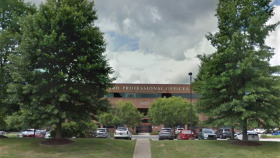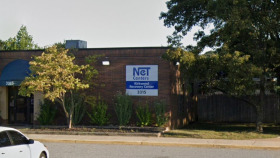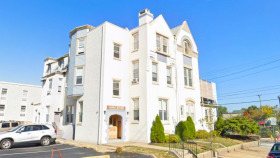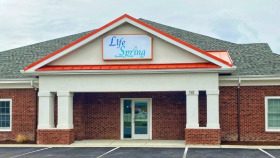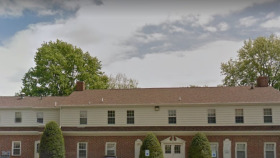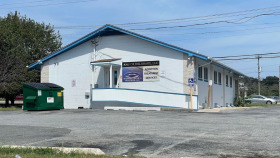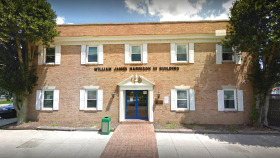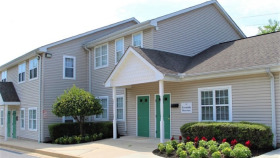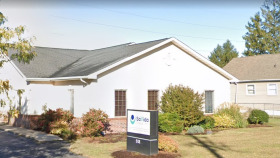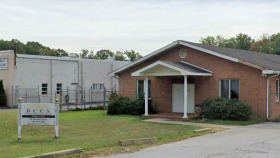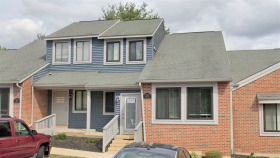Expert Insights
Fentanyl, a synthetic opioid that is 50 times more potent than heroin and 100 times more potent than morphine, is responsible for 82.5% of accidental drug overdoses in the state of Delaware. Considering laboratory testing is the only way to know how much fentanyl is in a pill or powder, the lethal dose of just two milligrams is wreaking havoc on the local community. Consumers of this drug simply have no way to know how much they are ingesting, leaving the state searching for answers to a problem that is on the rise.
~ Lesley Wirth
How Much Does Drug Rehab Cost in Delaware?
Delaware is ranked 4th nationwide in terms of addiction treatment affordability, with an average cost of drug and alcohol rehab of $53,690 (without insurance).
- Medical detox is the most expensive, with an average cost of $132,365
- Inpatient drug rehab in Delaware costs an average of $47,378
- Outpatient addiction treatment in Delaware costs and average of $7,872
- Outpatient methadone treatment is the most affordable, with an average cost of $6,995
How to Pay for Drug Rehab in Delaware
As of 2024, there were over 50 drug rehab facilities across the state of Delaware. These facilities accept several payment methods. Of those treatment facilities, the following numbers reflect how many accept their respective payment methods:
There are options to help pay for addiction treatment if you are unable to get access to free drug rehab in Delaware, including for people who are below the poverty level or are experiencing homelessness. Consider the following options that include sliding scale fees, government and state sponsored funding, and grants and scholarships.
Private Pay + Insurance
Commercial health insurance plans must cover mental health and substance abuse treatment as regulated by two Federal laws. However, there are exceptions to these laws which include the 2008 Mental Health Parity and Addiction Equity Act and the 2010 Affordable Care Act. You’ll need to verify your insurance coverage to ensure it covers substance abuse treatment.
Some people choose private pay or self pay even if they have insurance coverage. This affords a greater level of confidentiality and reduces the risk of their employers finding out they were in treatment. You may find treatment centers that offer payment options for people who are self-pay. These health insurance providers offer coverage in Delaware.
- Aetna CVS Health
- Ambetter Health of Delaware
- AmeeriHealth Caritas VIP Next, Inc.
- Cigna Health and Life Insurance Company
- Highmark Blue Cross Blue Shield Delaware
- Optimum Choice, Inc.
- UnitedHealthcare
Medicaid
Medicaid is healthcare coverage that’s funded by state and federal agencies. It helps low income families. To qualify, you must be a U.S. citizen or legal immigrant, have an active Social Security number, be a resident of Delaware and meet low income requirements. Delaware has accepted expanded Medicaid eligibility, which means adults under 65 years can qualify when their income is up to $138% of the federal poverty level.
Medicaid meets the essential Services mandate by the 2010 Affordable Care Act and covers mental health and substance abuse treatment. You can check your eligibility and apply at the Health Insurance Marketplace6 or through state resources.
Medicare
Medicare provides health coverage designed primarily for people over age 65. The program is funded by state and federal agencies but administered through Delaware. There are two parts to Original Medicare.8 Parts A and B cover inpatient and outpatient care, including for substance abuse treatment and mental health conditions.
Medicare Part C and D are premium based, managed care policies provided by commercial health insurance providers. Medicare Part C manages the combination of Medicare Parts A and B and sometimes provides additional benefits. Medicare Part D covers prescription medications, including those used in opioid substitution programs, such as methadone. People living in Delaware can choose from 33 different Medicare Advantage plans.9 More than 22% were enrolled in Medicare and only 30% had chosen Medicare Advantage plans.
Military Insurance
Active duty, veterans, and their families may be covered by government sponsored health programs that provide comprehensive coverage. This program is called TRICARE and covers people in the U.S. military throughout the world, separated into regions. Delaware is covered in the East Region by Humana Military.
TRICARE provides insurance coverage at Veterans Affairs hospital locations throughout Delaware, including Georgetown, Wilmington, and Dover. Active duty personnel and Veterans also have access to a network of civilian Healthcare facilities covered by TRICARE.
Tribal Funding and Programs
There are three Native American communities in Delaware, two of which are state recognized tribes. The American Rescue Plan Act developed programs to help Delaware tribes, which have received $56 million to recover from the COVID pandemic and have funds available for scholarship programs to help tribe members afford higher education and financial assistance for members to receive counseling for mental health and substance use treatment.
Other Low-Cost Options
There are several low cost options that can lower your expenses and make addiction treatment more accessible. For example, some treatment centers offer payment plans or sliding scale fees. To qualify, you typically must prove your income level and ability to pay.
One of the fastest ways to receive treatment is to use a personal loan from the bank or friends and family. Other options that help reduce your out of pocket expenses include grants and scholarships from local organizations, and faith based and community based programs that may offer help paying for treatment.
Free Addiction Treatment Resources in Delaware
Once you have decided to seek drug or alcohol rehab, the cost of treatment may present a challenge. That’s why free rehabs in Delaware offer such a benefit to people with substance abuse challenges.
Recovery services can be expensive but low cost and free rehab centers also offer inpatient and outpatient addiction treatment services. Services can also include medical detox, individual, group, and family therapies and aftercare programs to help you maintain sobriety.
Even low cost addiction treatment centers can present a challenge if you’re struggling with poverty, homelessness, unemployment and other situations that have made rehabilitation accessible.
There are 56 active rehabilitation clinics in Delaware, which is the fourth cheapest state for residential rehabilitation services. Each year, Delaware rehab clinics offer service to over 17,000 people who enroll in outpatient and inpatient care.
Help is Here Delaware
The organization provides mental health and addiction resources, including for emergencies and crises, a database to search and compare treatment providers, and local support over the phone. Mobile clinics serve the local correctional institutions to provide social support, counseling referrals, and connection with peer specialists. They also provide addiction prevention management and harm reduction.
Delaware Treatment Access Center
Delaware State agency acts as a liaison with the criminal justice system and treatment systems to provide care to offenders going through the Superior Court Drug Court. The program provides case management, prevention programs, and services for people with dual diagnosis.
Delaware Goes Purple
This community supported and sponsored program encourages people to get involved and connect with resources that help reduce the opioid epidemic and substance abuse and the stigma that surrounds it. They use social media to spread the message and connect with other community programs.
AtTAck Addiction
The AtTAck Addiction group teaches you how to administer Narcan and follow the state’s Good Samaritan laws. They connect individuals and families affected by addiction to local treatment and recovery services like housing scholarships and recovery homes.
NEXT Distro Delaware
Most drug overdose deaths occur from opioids. NEXT Distro helps you access supplies like free naloxone and fentanyl testing strips. They also provide access to overdose prevention education and links to crisis hotlines.
Drug Laws in Delaware
Delaware Good Samaritan Act
This law ensures that giving emergency aid does not make you liable for civil damages unless it is proved that you willfully, wantonly, or by gross negligence caused injury or death. This immunity allows friends and families to get help for loved ones who have overdosed without being afraid of civil damage.
Marijuana Possession
Marijuana is not legal in Delaware. If you have more than one ounce in your possession the penalty can include up to $575 in fines and three months in prison. Decriminalization efforts began in 2015 and have not yet been successful. Sale or distribution of less than 1,500 grams is a felony punishable by up to eight years in prison and five kilograms or more is punishable by at least two and up to 25 years.
Delaware DUI Law
After 2021, Delaware toughened the state’s DUI laws to help reduce the number of people killed and injured from impaired drivers. According to the per se laws you can be arrested when your blood alcohol concentration exceeds the legal limit without other evidence of intoxication or impairment. Your car does not need to be moving to be charged with a DUI if you are in the car, intoxicated, and can start the vehicle. You can be arrested when your blood alcohol concentration is lower, at 0.05%, if there is other evidence of your are impaired. This includes slurring words or difficulty performing field sobriety tests.
Delaware Cocaine Laws
Cocaine is the state’s first or second most heavily trafficked illegal drug. The penalties for possession and sale vary depending on the amount of the drug and the circumstances. For example, sale is a Class C felony with a mandatory six year prison sentence.
Resources
- National Center for Drug Abuse Statistics, Average Cost of Drug Rehab, Cost of Drug Rehab in Delaware, https://drugabusestatistics.org/cost-of-rehab/
- Centers for Medicare & Medicaid Services, The Mental Health Parity and Addiction Equity Act, https://www.cms.gov/marketplace/private-health-insurance/mental-health-parity-addiction-equity
- U.S. Department of Health and Human Services, Does the Affordable Care Act cover individuals with mental health problems? https://www.hhs.gov/answers/health-insurance-reform/does-the-aca-cover-individuals-with-mental-health-problems/index.html
- NCQA, NCQA Health Insurance Plan Ratings, https://healthinsuranceratings.ncqa.org/2019/search/Commercial/DE
- Health Insurance, Medicaid Eligibility and Enrollment in Delaware, https://www.healthinsurance.org/medicaid/delaware/
- Health Insurance Marketplace, https://www.healthcare.gov/
- Delaware.Gov, Medicaid, https://www.dhss.delaware.gov/dss/medicaid.html
- Centers for Medicare and Medicaid Services, Overview of Medicare, https://www.cms.gov/cms-guide-medical-technology-companies-and-other-interested-parties/getting-started/overview-medicare
- Health Insurance, Medicare in Delaware, https://www.healthinsurance.org/medicare/delaware/
- TRICARE, Regions, https://www.tricare.mil/About/Regions
- U.S. Department of Veterans Affairs, Locations/Delaware, https://www.va.gov/directory/guide/state.asp?dnum=ALL&STATE=DE
- Delaware Historical and Cultural Affairs, Honoring Delaware’s Native American Heritage, https://history.delaware.gov/2022/10/20/native-american-heritage-month/
- Delaware Tribe of Indians, ARPA Programs, https://delawaretribe.org/services-and-programs/arpa-programs/
- Help is Here Delaware, https://www.helpisherede.com/
- Delaware Treatment Access Center, https://dhss.delaware.gov/dhss/dsamh/tasc.html
- Delaware Goes Purple, https://delawaregoespurple.org/
- AtTAck Addiction, https://www.attackaddiction.org/
- NEXT Distro, Stay Alive, Stay Safe, https://nextdistro.org/delaware
- Delaware Good Samaritan Act, Title 16 Health and Safety, https://delcode.delaware.gov/title16/c068/sc01/index.html
- FindLaw, Delaware Marijuana Laws, https://www.findlaw.com/state/delaware-law/delaware-marijuana-laws.html
- FindLaw, Delaware DUI Laws, https://www.findlaw.com/state/delaware-law/what-are-the-delaware-dui-laws.html
- FindLaw, Delaware Cocaine Laws, https://www.findlaw.com/state/delaware-law/delaware-cocaine-laws.html









